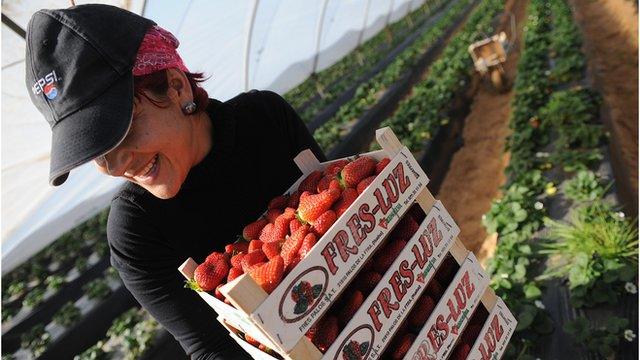75,000 cap on EU migrants will not happen, says Vince Cable
- Published
- comments
Business Secretary Vince Cable says the debate over a cap on immigration to the UK is a part of the "periodic panics" over the subject.
A 75,000-a-year cap on the number of EU migrants to the UK will not happen, the business secretary has told the BBC.
Vince Cable accused the Conservatives of being "in a bit of a panic because of UKIP", as he responded to Home Office proposals leaked last week., external
Home Secretary Theresa May has not ruled out a possible future cap, saying there is an issue over "free movement".
When asked if there was a crisis in the coalition over the issue, Mr Cable said there was "quite a lot of tension".
The Lib Dem echoed earlier comments by his party leader, Nick Clegg, arguing there should not be further restrictions on freedom of movement.
Restrictions on movement of Bulgarians and Romanians within the EU are due to end on 1 January and there have been warnings that the UK could see an influx of migrants.
But earlier on Sunday, Bulgarian President Rosen Plevneliev warned that David Cameron's plans to toughen rules on immigration could harm the UK's image as a "great global power that pioneered integration".
'Illegal and impossible'
Mr Cable told BBC One's Andrew Marr show a cap would be "illegal and impossible to implement".
"The Conservatives are in a bit of a panic because of UKIP, reacting in the way they are. It's not going to help them, I think, politically, but it's doing a great deal of damage," he said.
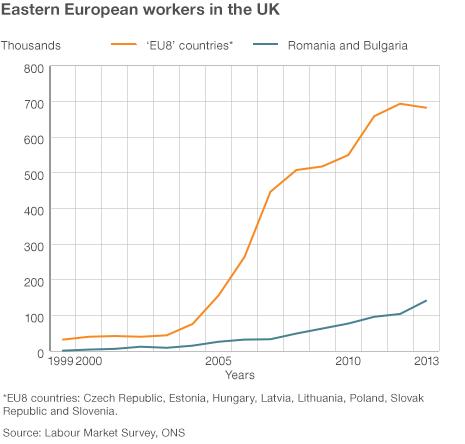
UKIP, which has called for withdrawal from the European Union and greater restrictions on immigration, has seen improved poll ratings this year. The party, led by Nigel Farage, is expected to gain seats at next year's European Parliament elections.
But Mr Cable said politicians had a responsibility to look at the facts.
"There is very little evidence of benefit tourism from people coming from eastern Europe. All the evidence suggests that they put far more into the economy in terms of tax than they take out in benefits," he said.
Speaking of a cap, he said: "It isn't going to happen, and Nick Clegg's made it very clear he isn't going to let it happen."
Deputy Prime Minister Mr Clegg had earlier told the Sunday Times, external curbs on migrants' benefit rights were "sensible and reasonable" but a cap would not work.
He had already condemned Home Office plans for a possible cap, which were leaked to several newspapers last weekend, as "illegal and unworkable".
Mr Clegg said that "sticking a big no-entry sign on the cliffs of Dover may be politically popular, but at a huge economic cost".
"Do we want the NHS to fall over and the City of London to grind to a halt?" he said.
'Isolation and nationalism'
In an interview with the Observer, external, Mr Plevneliev said Britain should not play on people's fears over immigration.
"Isolating Britain and damaging Britain's reputation is not the right history to write," he said.
He went on: "Bulgarian people are raising a lot of questions today about the democratic, tolerant and humane British society."
He asked whether Great Britain today was "writing a history of a switch to isolation, nationalism and short-term political approaches".
He said politicians should be "ready to say the inconvenient truth" and "fight for unpleasant but necessary decisions".
In response, Downing Street said that while free movement was a principle of the EU, it could not be a completely unqualified one.
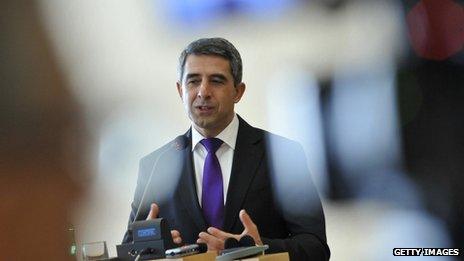
Bulgarian Present Rosen Plevneliev gave an interview to the Observer newspaper
Last month, Bulgaria's ambassador, Konstantin Dimitrov, said about 8,000 migrants a year from Bulgaria could come to the UK after the interim restrictions on freedom of movement are lifted.
But no-one knows for certain what the numbers will be, and pressure group MigrationWatch UK, which campaigns for tighter immigration controls, has estimated 50,000 people will move to the UK from the two countries each year for five years.
The government is planning a range of measures to toughen welfare rules for EU migrants, including:
New migrants not getting out-of-work benefits for the first three months
Payments being stopped after six months unless the claimant has a "genuine" chance of a job
New migrants not being able to claim housing benefit immediately
Deportation of those caught begging or sleeping rough, with no return within a year
Quadrupling fines for employers not paying the minimum wage
Official figures released last month, external suggested net migration - the difference between the number of people coming to live in the UK and those emigrating - was 182,000 in the year to June.
Of the 503,000 people who immigrated to the UK in that period, 183,000 were EU citizens. There were also an estimated 242,000 non-EU citizens and 77,000 British citizens.
Mr Cameron has said he wants the annual net migration figure to be less than 100,000.
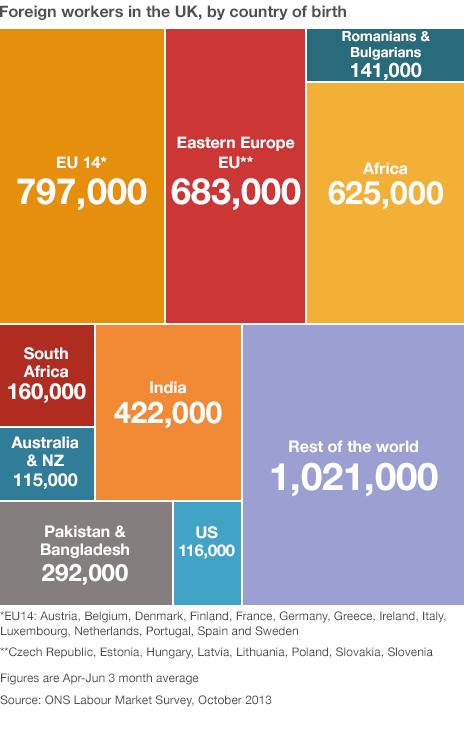
- Published22 December 2013
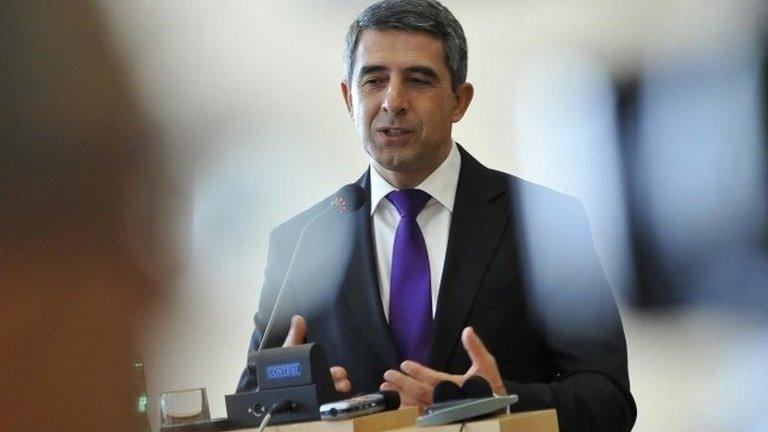
- Published25 November 2013
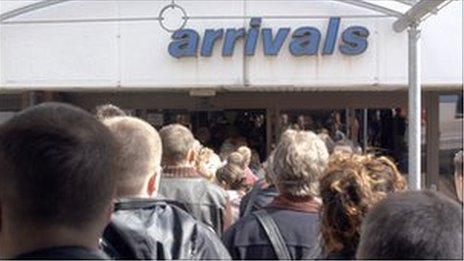
- Published14 May 2014
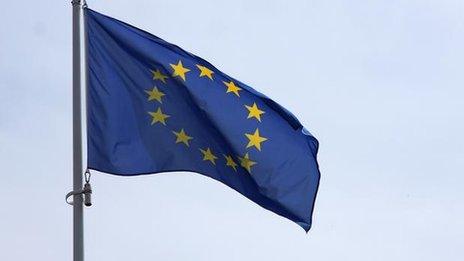
- Published16 August 2013
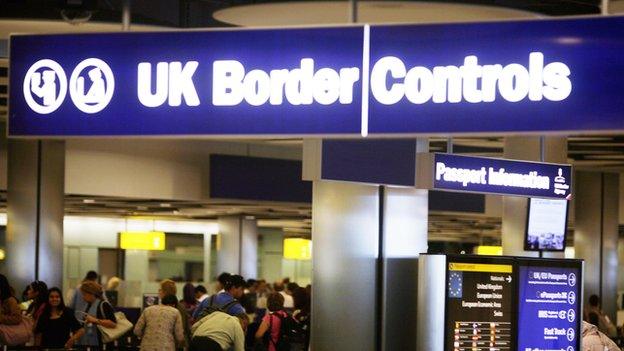
- Published18 December 2013
